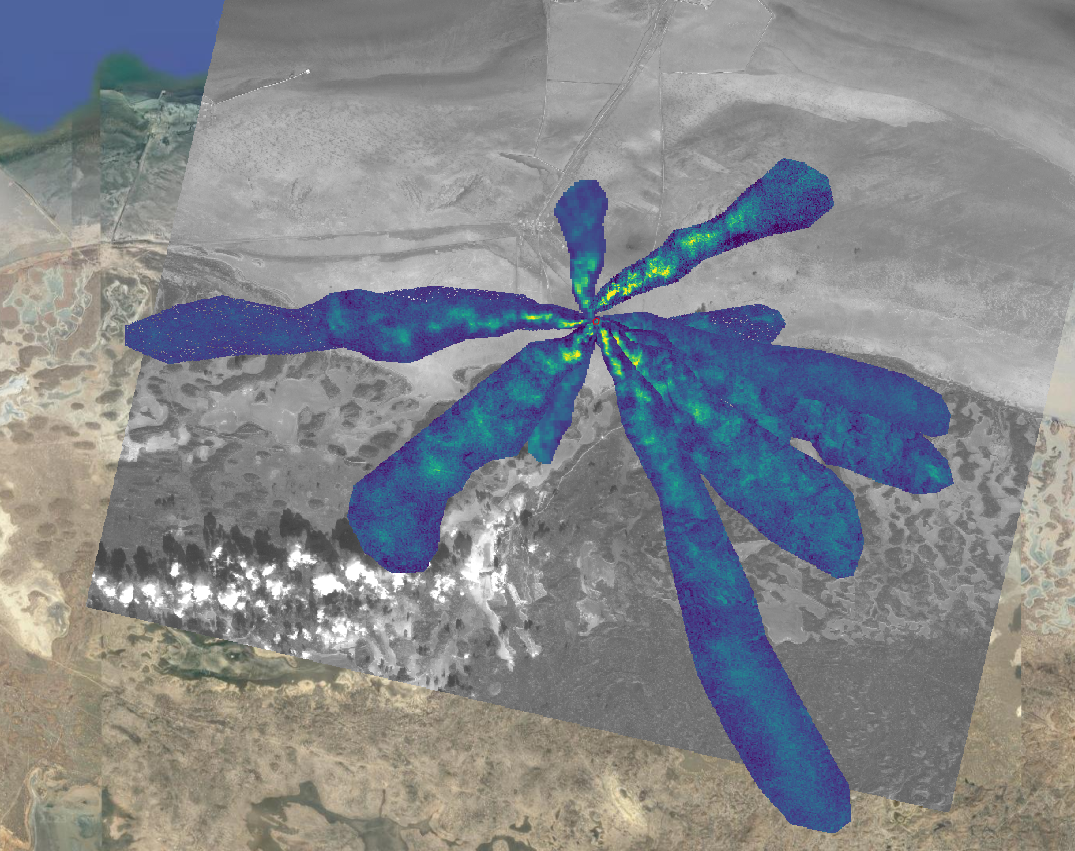Oil giant fined just $780,000 after ‘one of world’s biggest ever’ methane leaks
Leak comparable to that of driving more than 717,000 petrol cars for a year

Your support helps us to tell the story
From reproductive rights to climate change to Big Tech, The Independent is on the ground when the story is developing. Whether it's investigating the financials of Elon Musk's pro-Trump PAC or producing our latest documentary, 'The A Word', which shines a light on the American women fighting for reproductive rights, we know how important it is to parse out the facts from the messaging.
At such a critical moment in US history, we need reporters on the ground. Your donation allows us to keep sending journalists to speak to both sides of the story.
The Independent is trusted by Americans across the entire political spectrum. And unlike many other quality news outlets, we choose not to lock Americans out of our reporting and analysis with paywalls. We believe quality journalism should be available to everyone, paid for by those who can afford it.
Your support makes all the difference.The authorities in Kazakhstan have imposed a fine of $780,000 on an oil company responsible for one of the worst methane leaks ever recorded following a prolonged fire at one of its fields last year.
Buzachi Neft, a private oil company, saw a months-long fire at its Karaturun field in southwestern Kazakhstan during drilling at an exploration well in 2023.
The fire lasted from 9 June to 25 December and caused one of the largest emissions of methane in history, with concentrations exceeding permissible levels by 480 times, findings from the ecology department of the Mangystau regional government confirmed on Monday.
In a Facebook post, the department said it made an “unscheduled inspection” of the site in January, a month after the blaze was extinguished, that revealed “violations of environmental legislation”.
Methane, a dangerous greenhouse gas, is 80 times more potent in driving the climate crisis than carbon dioxide in the 20 years after its release. It is responsible for almost one-third of the rise in global temperatures since the industrial era, according to the International Energy Agency (IEA).
The methane leak was first investigated last year by the French geoanalytics firm Kayrros which produced satellite imagery showing clouds of methane rising from the oil field.

Reacting to the verdict, Antoine Halff, co-founder and chief analyst at Kayrros, said while the amount of the fine the company is liable to pay is highly inadequate, holding it responsible for the leak is a “cause for celebration”.
“A $780,000 fine comes to just $6.20 per tonne of methane,” Mr Halff told The Independent, adding that it is “nothing compared to” the $900 per metric tonne of methane levy imposed on major emitters by the Biden administration as part of its landmark Inflation Reduction Act, which aims to reduce carbon and methane pollution.
“In the past, those responsible for methane leaks have sought to shirk responsibility or even deny that a leak has taken place. For that reason, any pivot away from denial is cause for celebration,” he added.
The confirmation from the Kazakh authorities came just a few days after a pre-print analysis by research teams from France, Spain, and the Netherlands showed approximately 127,000 tonnes of the dangerous gas was released during the leak, surpassing the emissions from all previously reported accidents. The BBC first reported the findings as part of its investigation.
That amount of methane is equal to emissions from 791,318 petrol-powered cars being driven over a year, according to the Environment Protection Agency website’s calculators, the report said.
”Only the Nord Stream sabotage may have led to a stronger leak,” Luis Guanter from the Polytechnic University of Valencia, told the BBC.
Despite the release of the study, the company continued to deny the scale of the leak, saying only a “negligible” amount of gas was released.
It claimed only water vapour was leaked into the atmosphere, forming large white plumes that were visible from space.
“We have approached the situation responsibly,” the company’s deputy director for strategic development, Daniyar Duisembayev, told the BBC last week.
The Independent has reached out to Buzachi Neft for comment.
The company’s claim had been dismissed by experts investigating the leak.
“It is extremely unlikely to mistake water vapour for methane,” Kayrros told Bloomberg at the time.
Secret methane leaks from oil drilling sites have been dumping tonnes of harmful greenhouse gases into the atmosphere all over the world, from the United States to Turkmenistan, according to the United Nations.
Methane is a colourless and odourless gas, so it is difficult to trace the leaks. But satellite data in recent years have been able to discover such secret leaks.
Mr Halff says the verdict is a sign that “the government is taking satellite monitoring seriously, using it to guide its decision-making, and sending a very clear message that dumping massive amounts of methane into the atmosphere is absolutely unacceptable.”
“That’s a big step in the right direction,” he adds.
Increasing efforts are being made to target methane pollution worldwide, including holding oil and gas companies, which are the largest source of methane emissions, responsible for leaks.
Over 150 countries, including Kazakhstan, have signed a Global Methane Pledge at last year’s Cop28 climate summit, a voluntary agreement which aims to slash methane emissions by 30 per cent by 2030.
Join our commenting forum
Join thought-provoking conversations, follow other Independent readers and see their replies
Comments